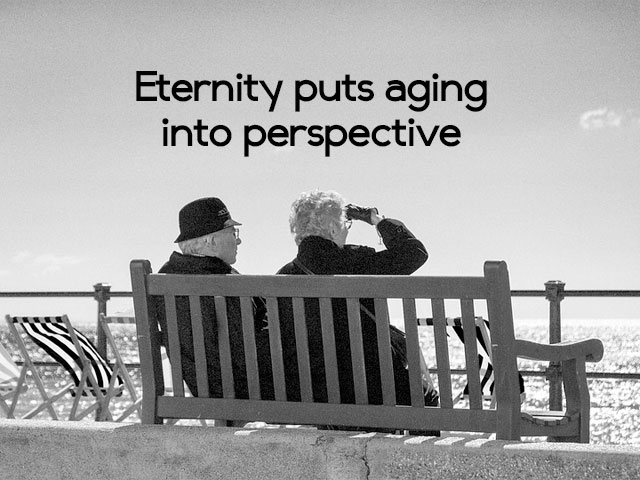Getting Older Every Day
Last year I celebrated my 70th birthday. I have much to be thankful for, and spiritually and emotionally, I feel as motivated and energetic as ever.
But there is a reality that comes with these milestones that I do not celebrate: I am not the same person physically as I once was. Even two decades ago, in my “mid-life” years, youth had long passed me by.
Aging is not just a bodily experience; it’s an intensely spiritual one with cultural relevance, and therefore, worthy of our attention.
People are not supposed to die
When we see wrinkles and spider veins, when hair starts changing color or disappearing altogether, and when muscles get soft and skin begins to sag, a dread grips us all. Sure, it would be nice to have the energy of a 20-year-old, but it’s not so much the number on our birthday card or the fact that we can’t play sports anymore that gets us disheartened.
No, it is the awareness that we are closer to the one thing in life that simply should never be—death.
Aging, sickness, deterioration, and death preach the gospel because they point to the life-and-death drama of the gospel. So don’t ignore these spiritual emotions; they are not weird or unnatural. They make complete biblical and biological sense. When you listen, you will hear the horrible cries of the Fall mixing with the awesome celebrations of eternity.
Allow the physical process of aging in the body be a profoundly spiritual journey for your soul.
Our culture is obsessed with youth and physical image
We dread aging because we know that death is what will ultimately follow, but we also live in a culture obsessed with the appearance of a youthful human body. The comprehensive secularization of our culture has resulted in body image obsession.
The Aesthetic Society revealed that Americans spent over $9 billion on aesthetic plastic surgery in 2020. 40% of all surgical procedures were in the 36-50 age group. Even if we have never altered our body, we are surrounded by an addicted culture, and we all live under its influence.
How much are you being influenced by the addiction and idolatry of the culture in which you live?
The Bible looks at youth and aging in the opposite way to culture
Author Andrew W. Achenbaum wrote that a positive view of aging existed in America for almost two hundred years. The elderly were typically esteemed in their communities and were consistently presented to young people as examples.
There’s a more significant book that holds the same view. Yes, the Bible esteems the vigor of the young, but it views old age as a sign of blessing and repeatedly calls on us to honor the aged (Isa. 46:4, Lev. 19:32, Prov. 23:22, 1 Tim. 5:1).
The tendency of modern Western culture to despise aging and worship youthfulness is one subtle indicator of how far it has moved from a biblical perspective on life. In Scripture, old age is a sign of God’s covenantal faithfulness. It is also connected with practical wisdom.
Are you allowing a biblical perspective on life to shape your view of old age?
Eternity puts aging into perspective
The most optimistic aspect of the Christian worldview is its focus on eternity. Despite our aging and inevitable death, “We do not lose heart. Though our outer self is wasting away, our inner self is being renewed day by day.” We are the people who “fix our eyes on what is unseen,” because “what is unseen is eternal” (2 Cor. 4:16-18).
We need to constantly remind ourselves that the best of life is yet to come. After this body has served its earth-bound purpose, we will be given another body for eternity.
We don’t need to deny or ignore the painful physical process of decay that is happening, but with each wrinkle, let’s recognize another glorious and unstoppable process. We are growing in strength of character being prepared to live forever in paradise with our Lord!
God bless,
Paul David Tripp
Reflection Questions
1. Who do you know who has passed away? How is this just one more painful reminder of the Fall? Are you allowing yourself to grieve properly?
2. Where have you seen any idolatry or addiction with body image in your culture recently? How might this be affecting you, even in subtle ways? Be honest.
3. Who can you spend time with who is older than you? What wisdom can you glean from their life, even if they share different perspectives than you? How can you honor them?
4. How can you share the wisdom that God has graced you with with the next generation? Apart from your own children, who can you love, mentor, and disciple?
5. How does eternity practically change the way you view your body and age? Be specific and consider the impact that it should have on your time, finances, and priorities. What else does eternity change that your culture idolizes and is addicted to?
Want to learn more about New Hope Church? Click here.

